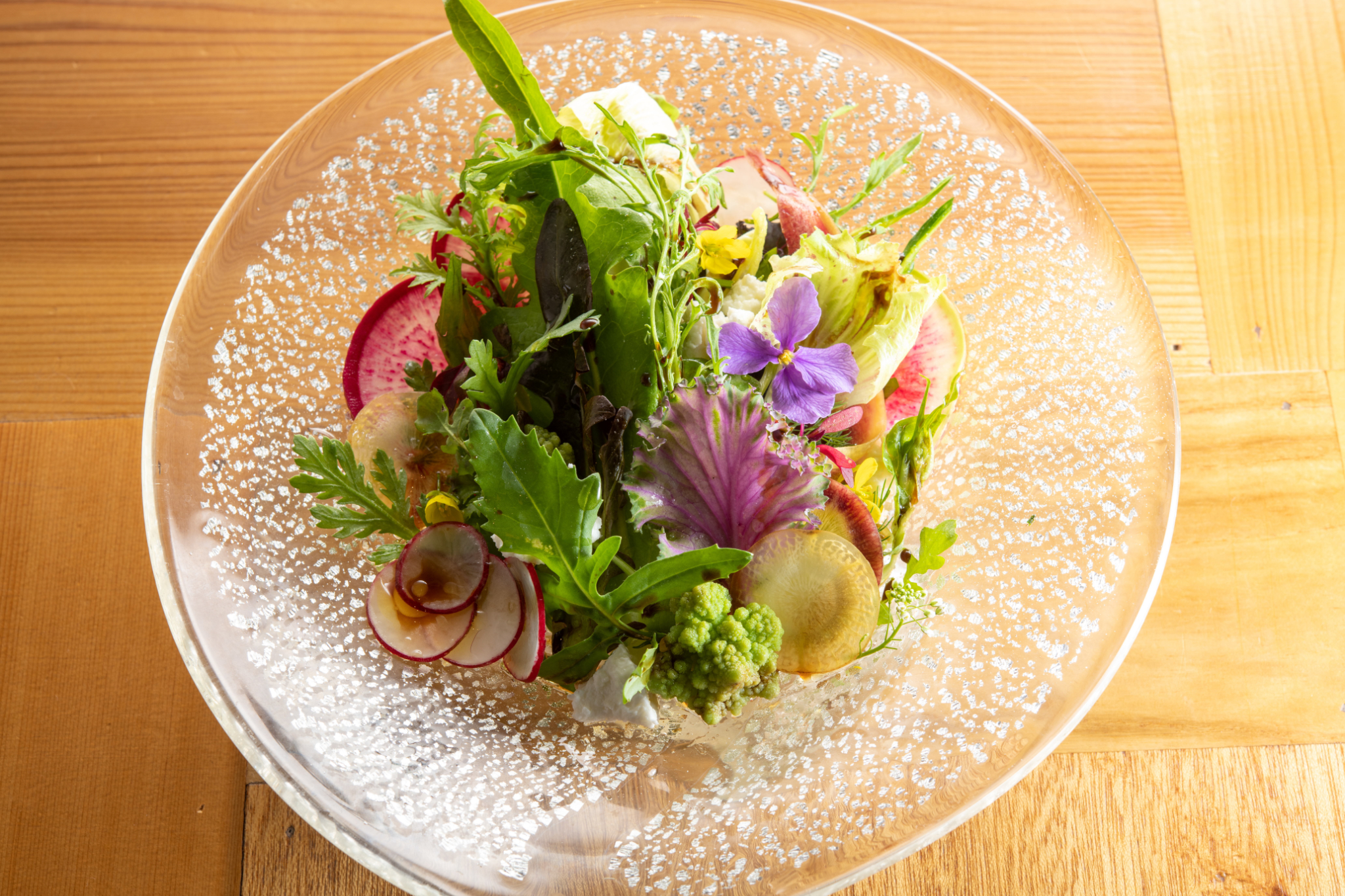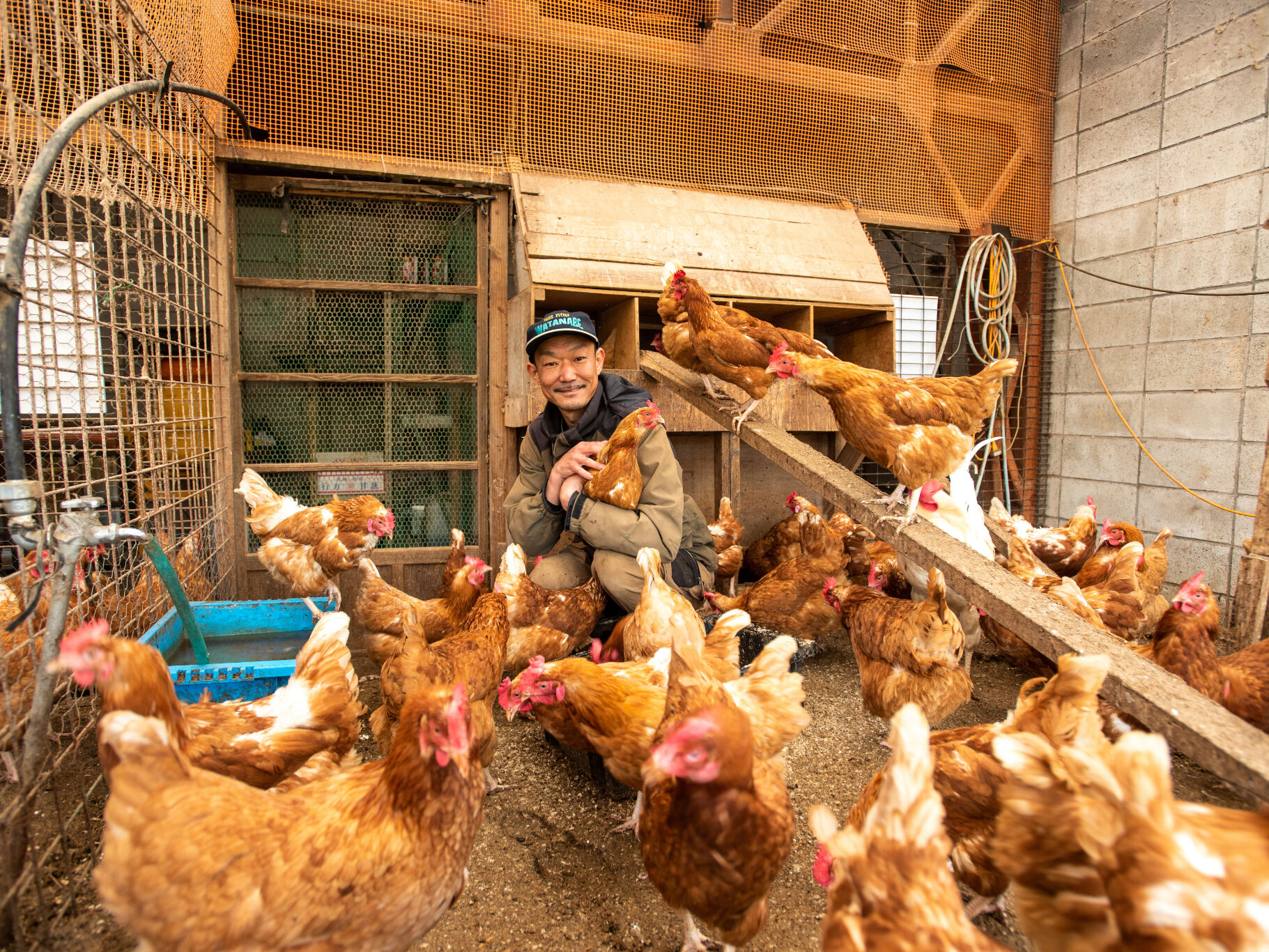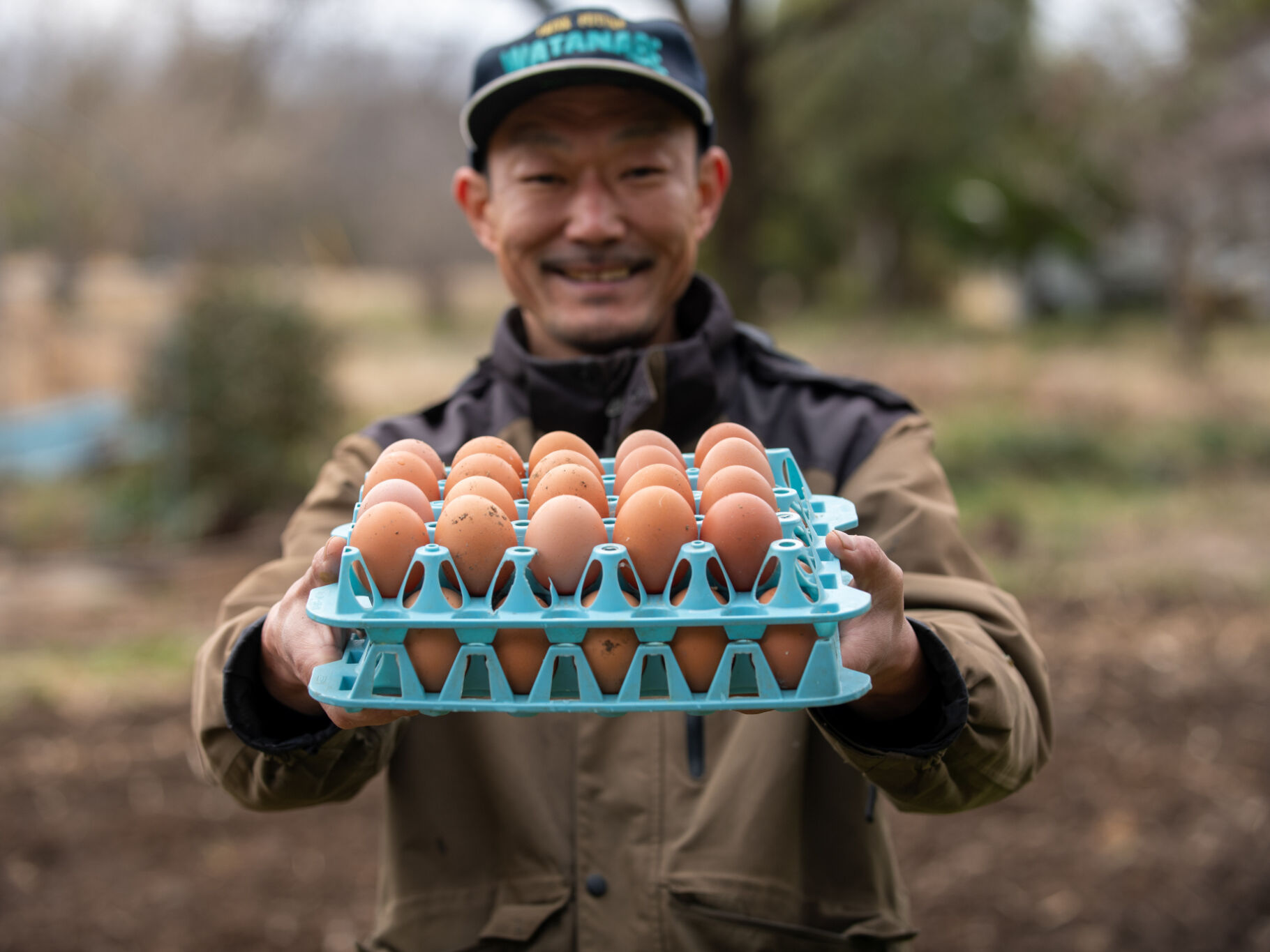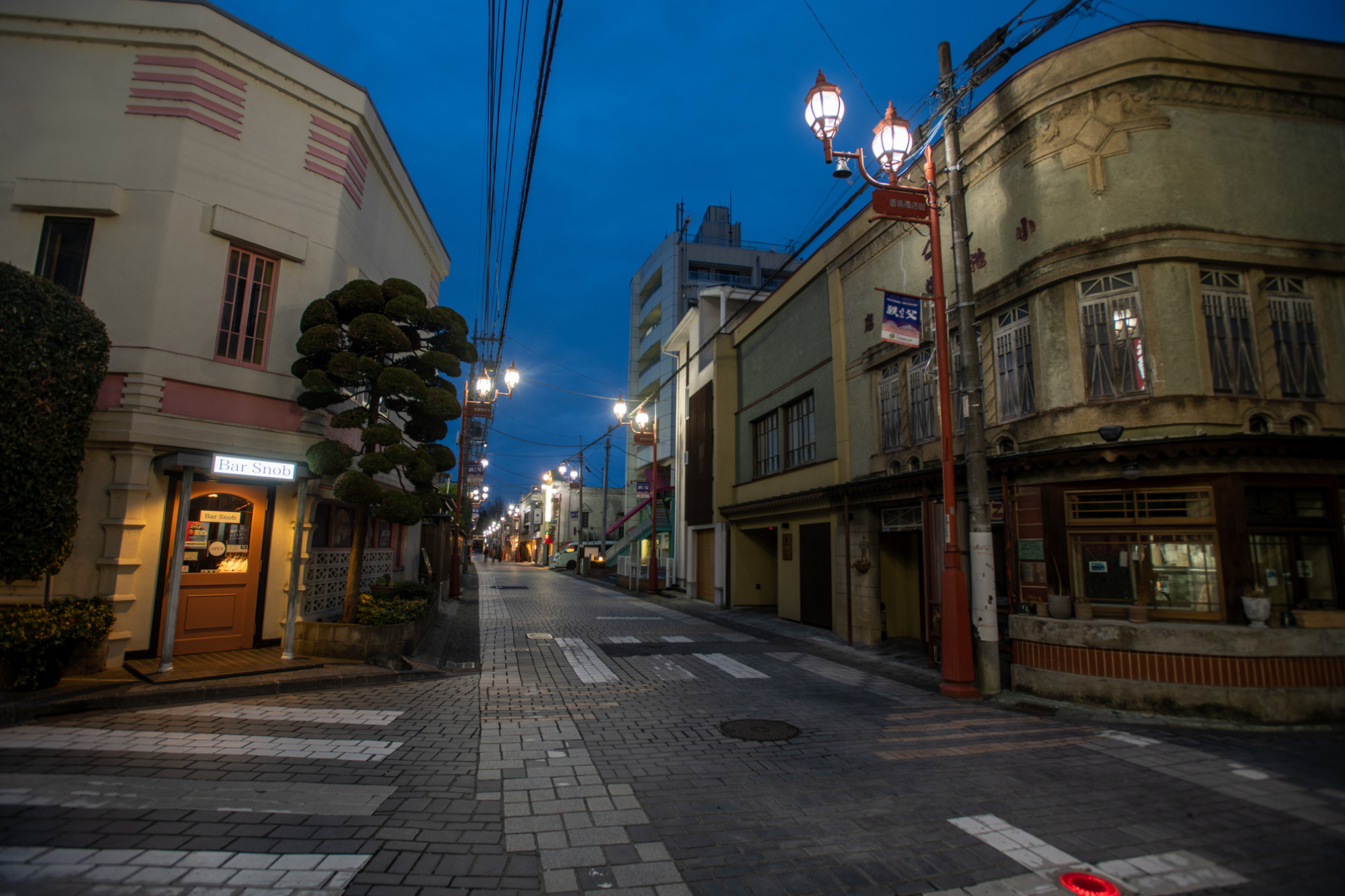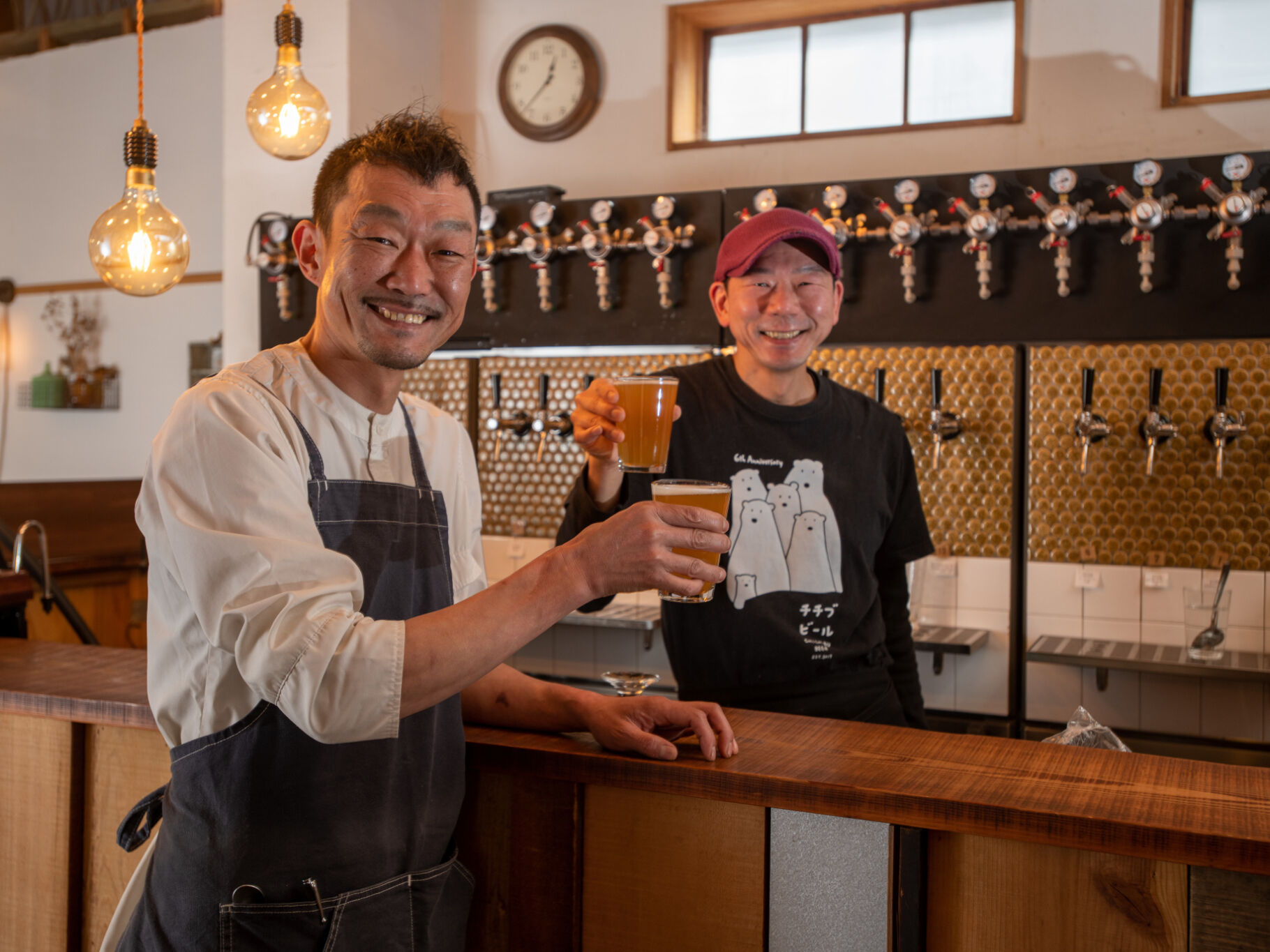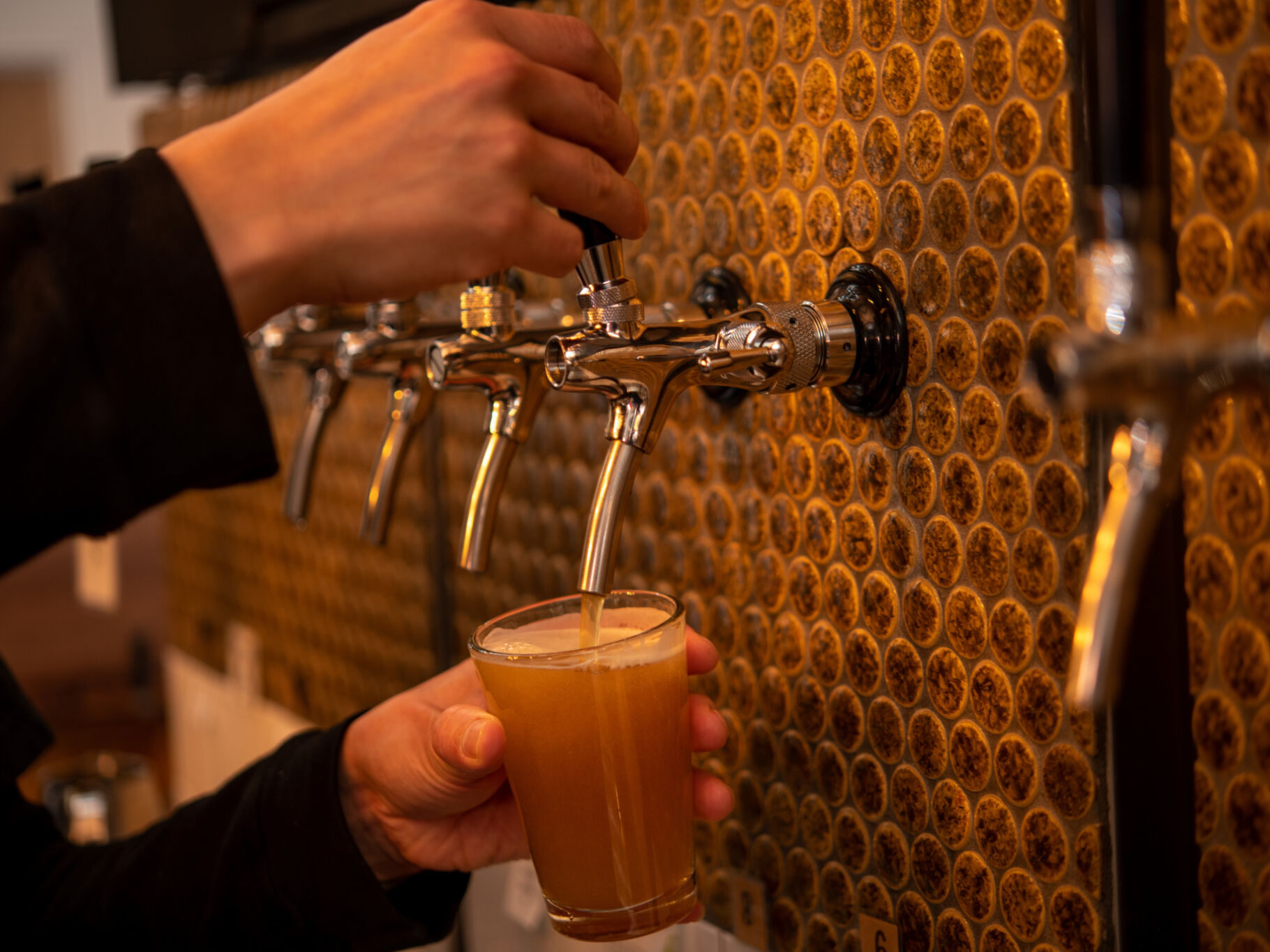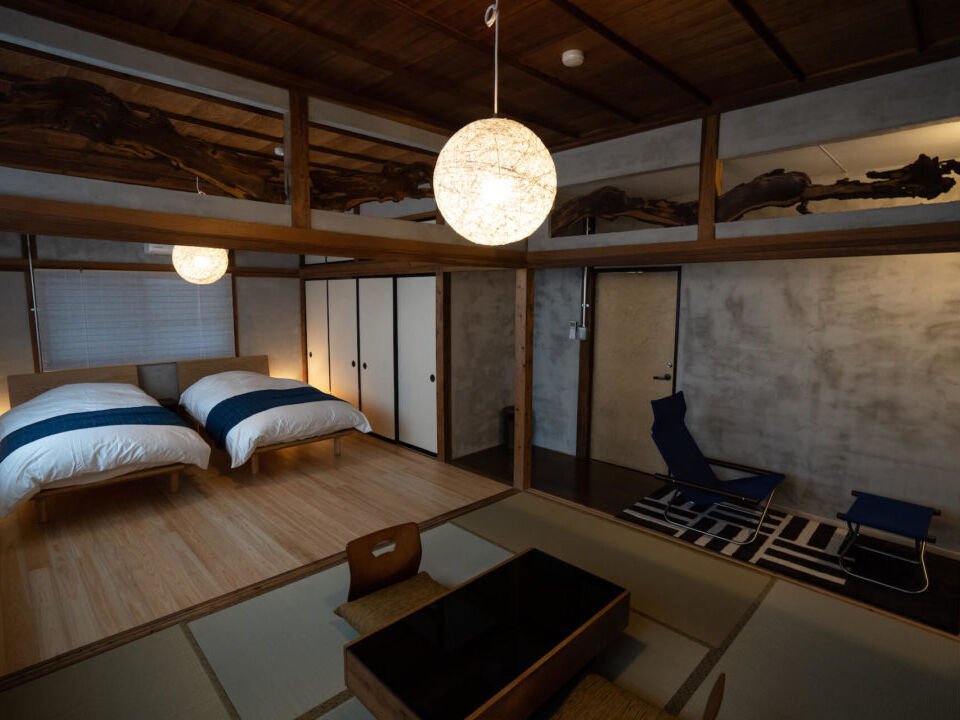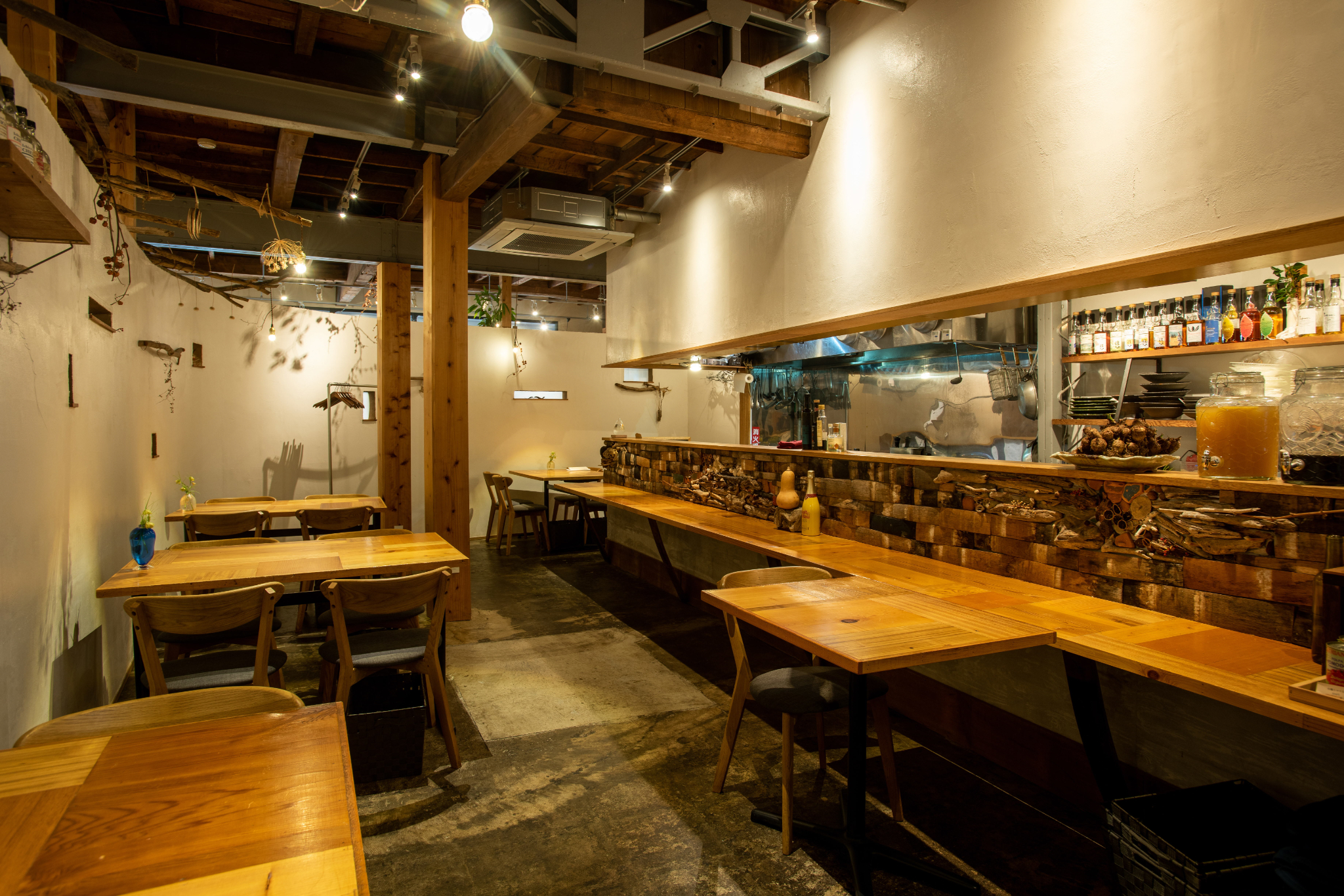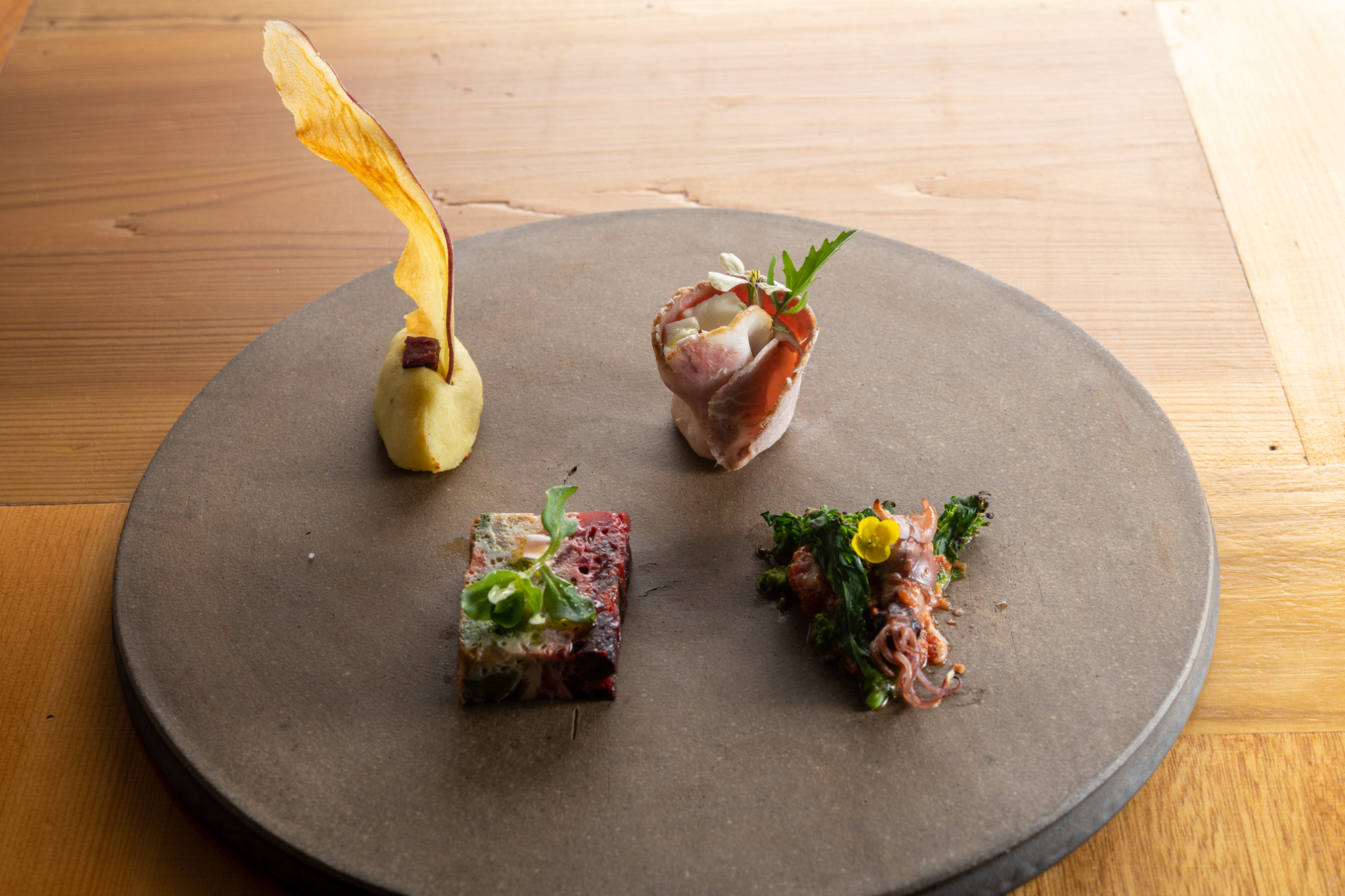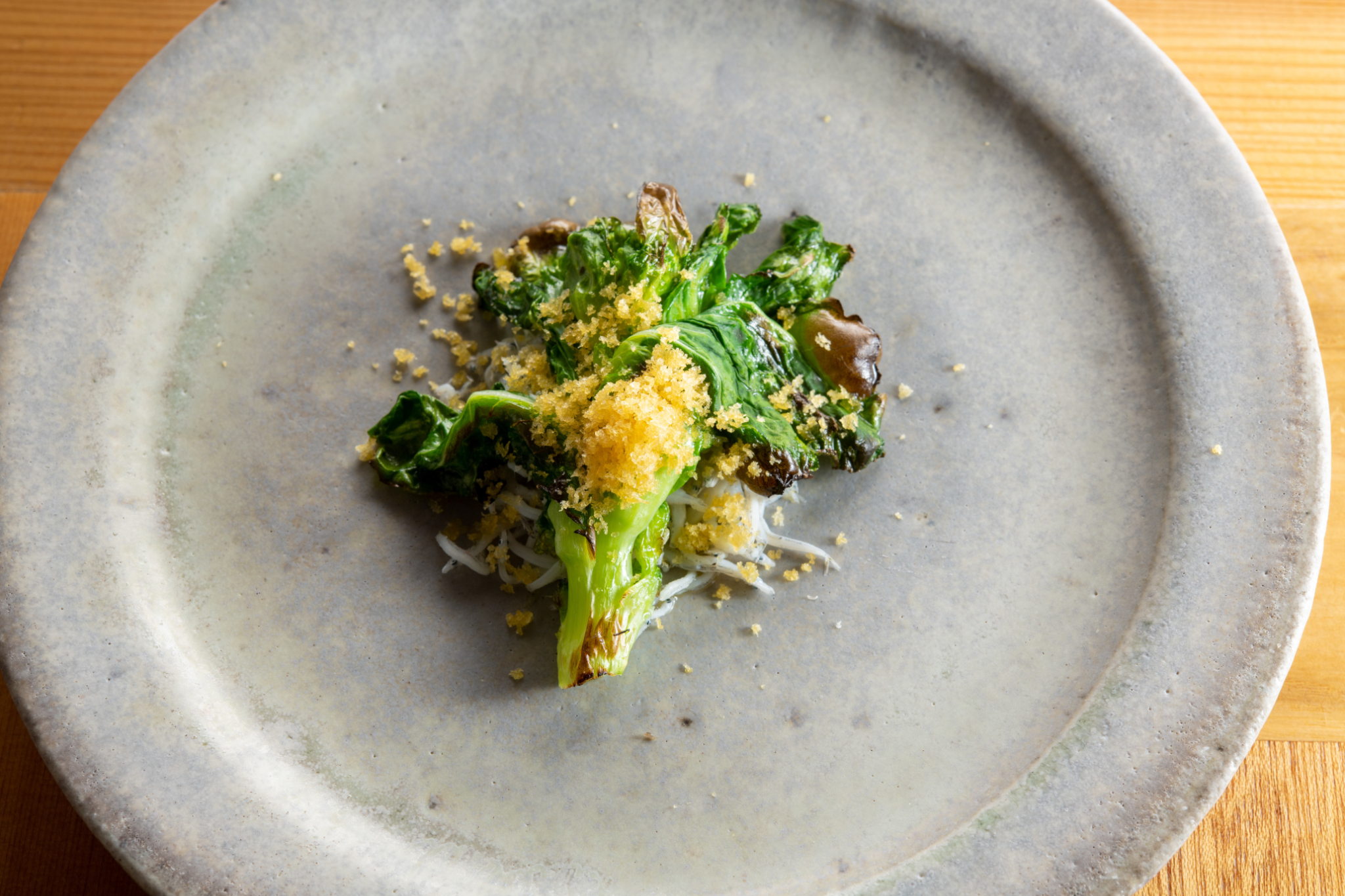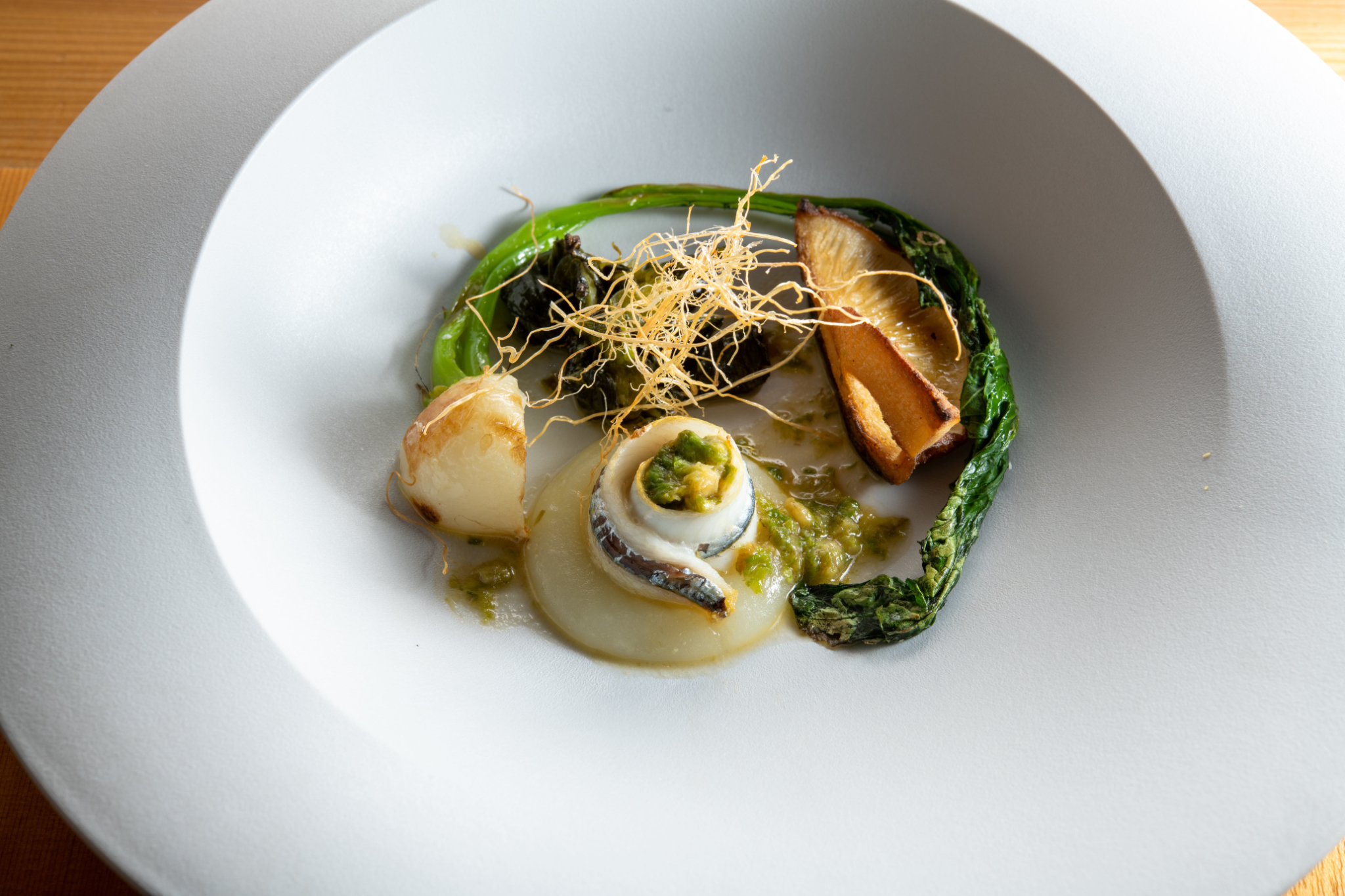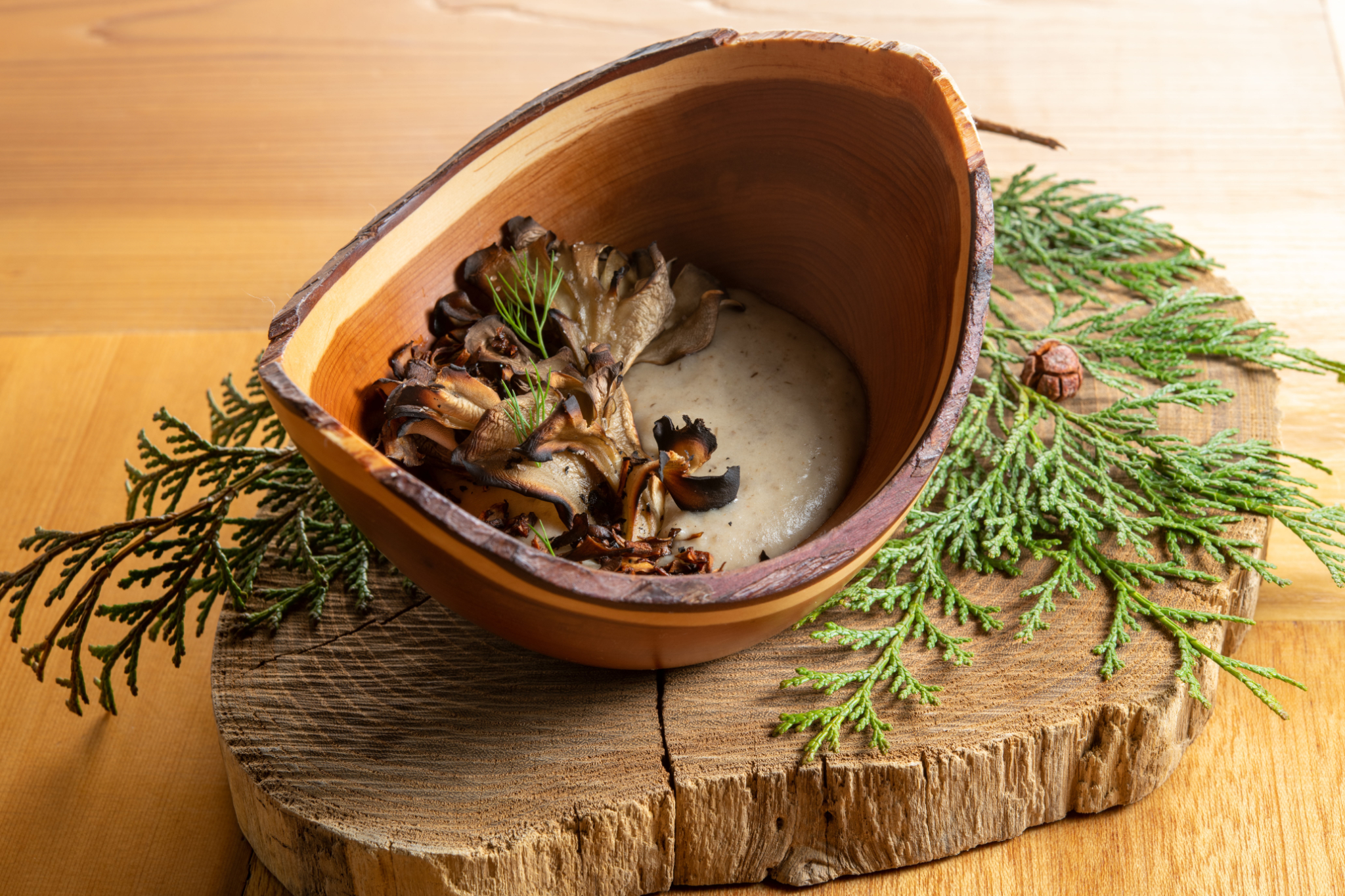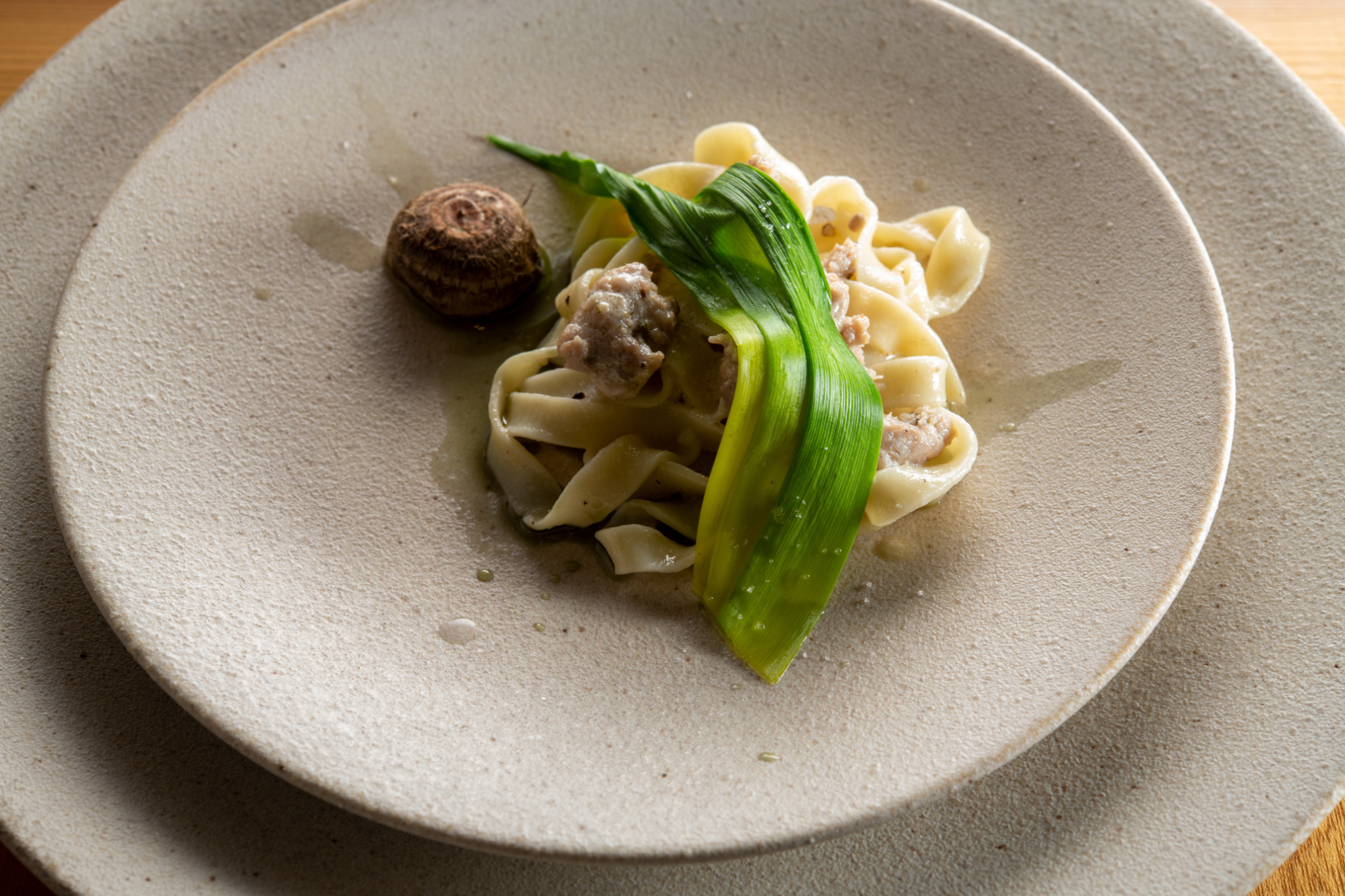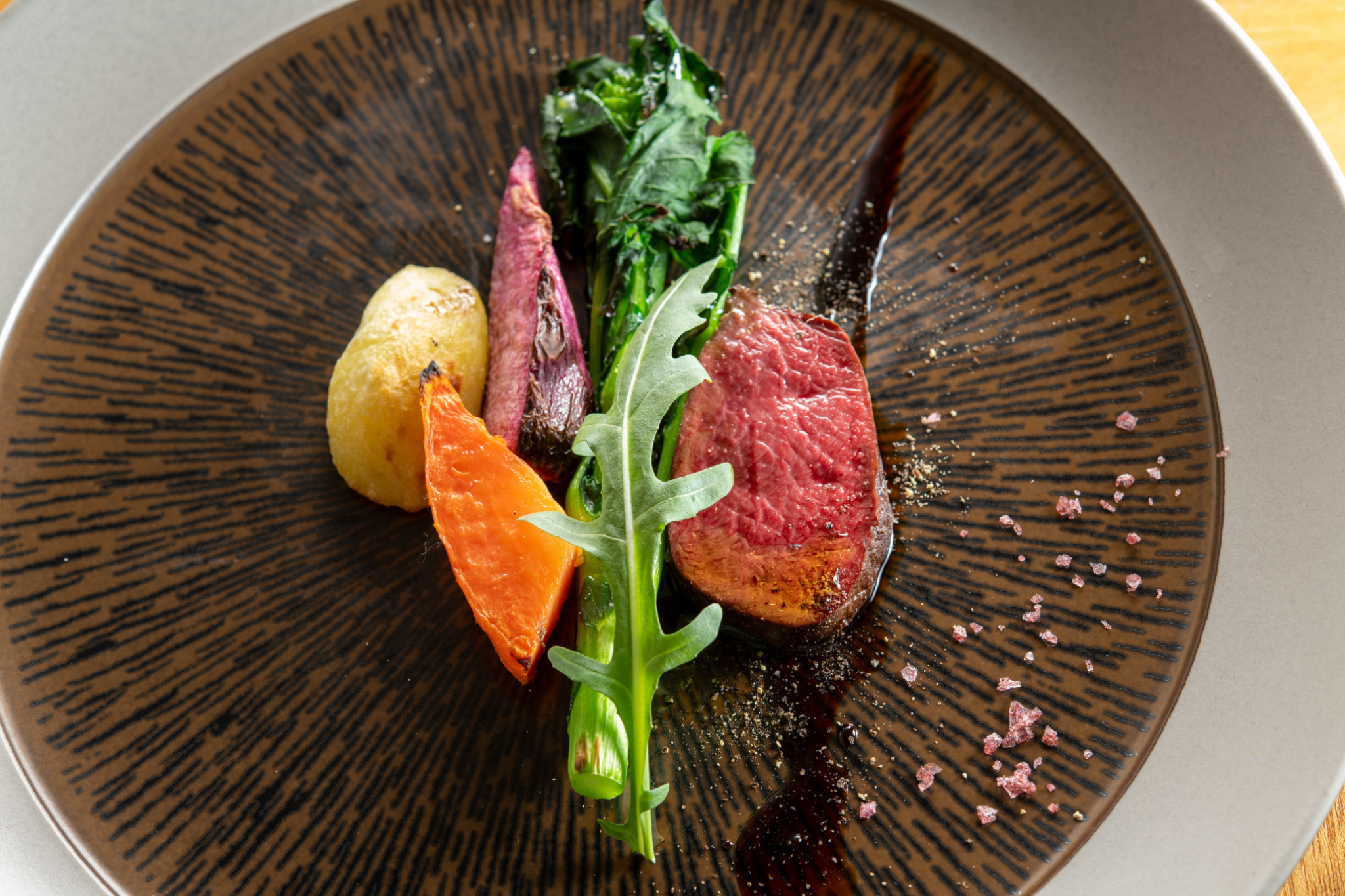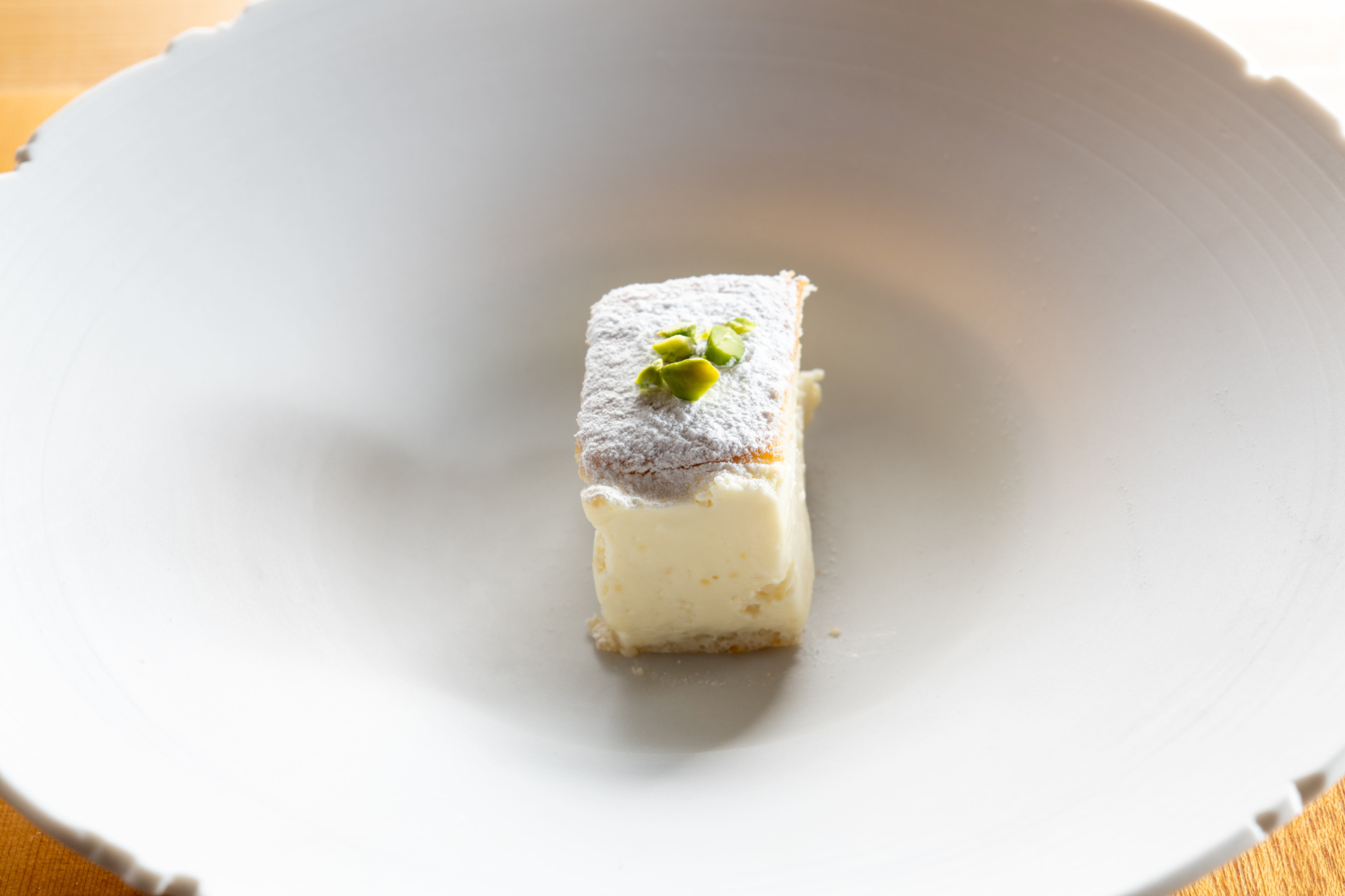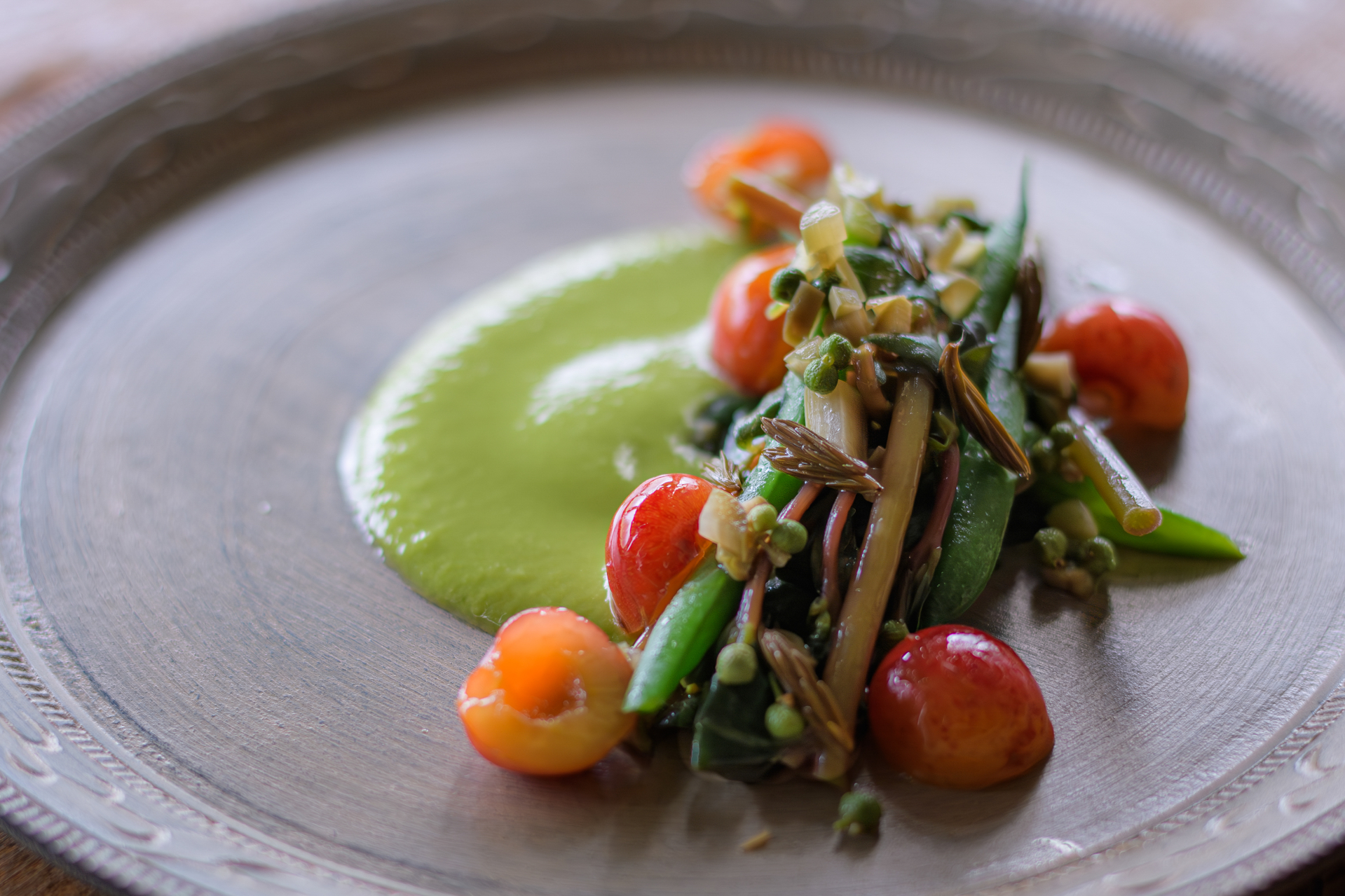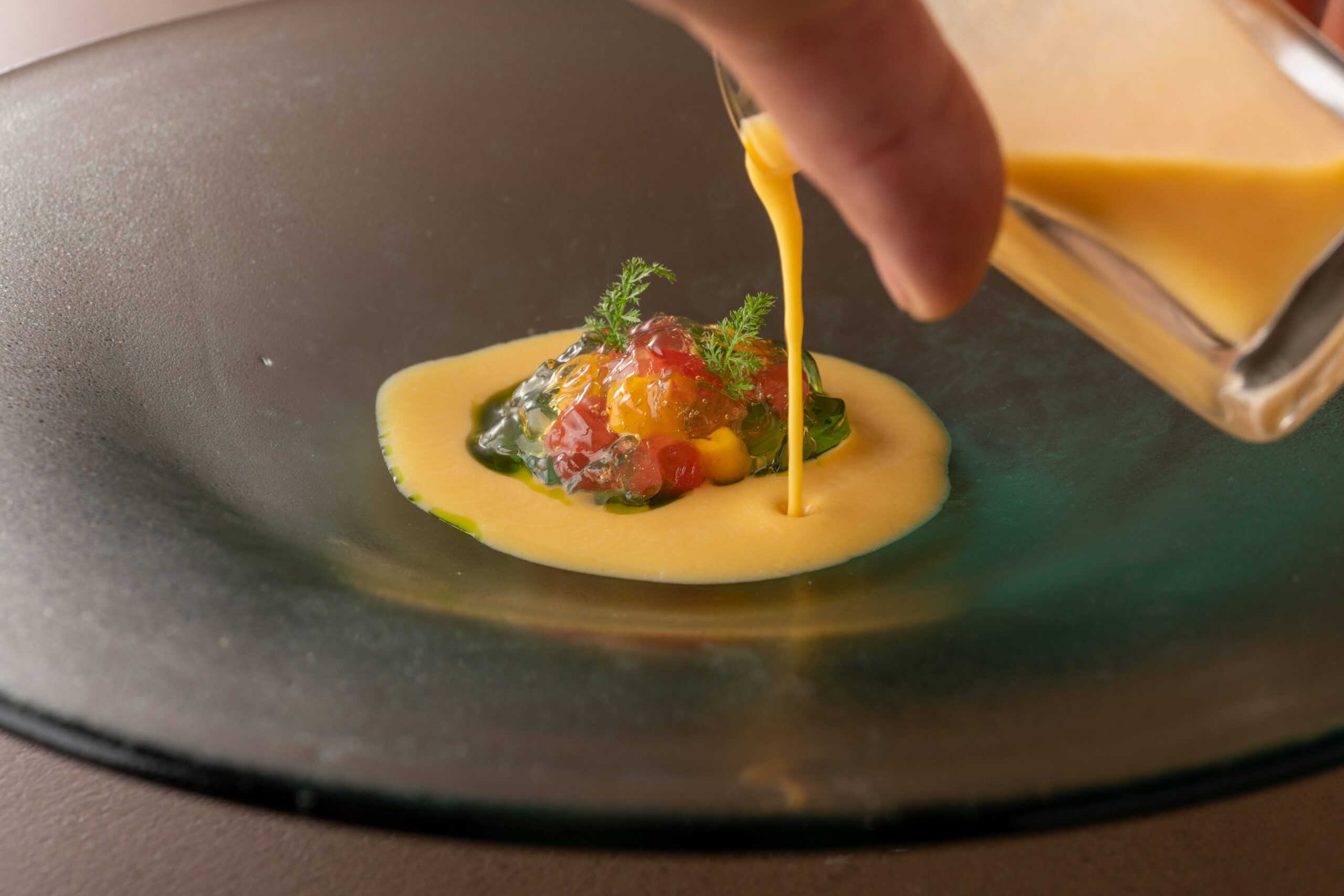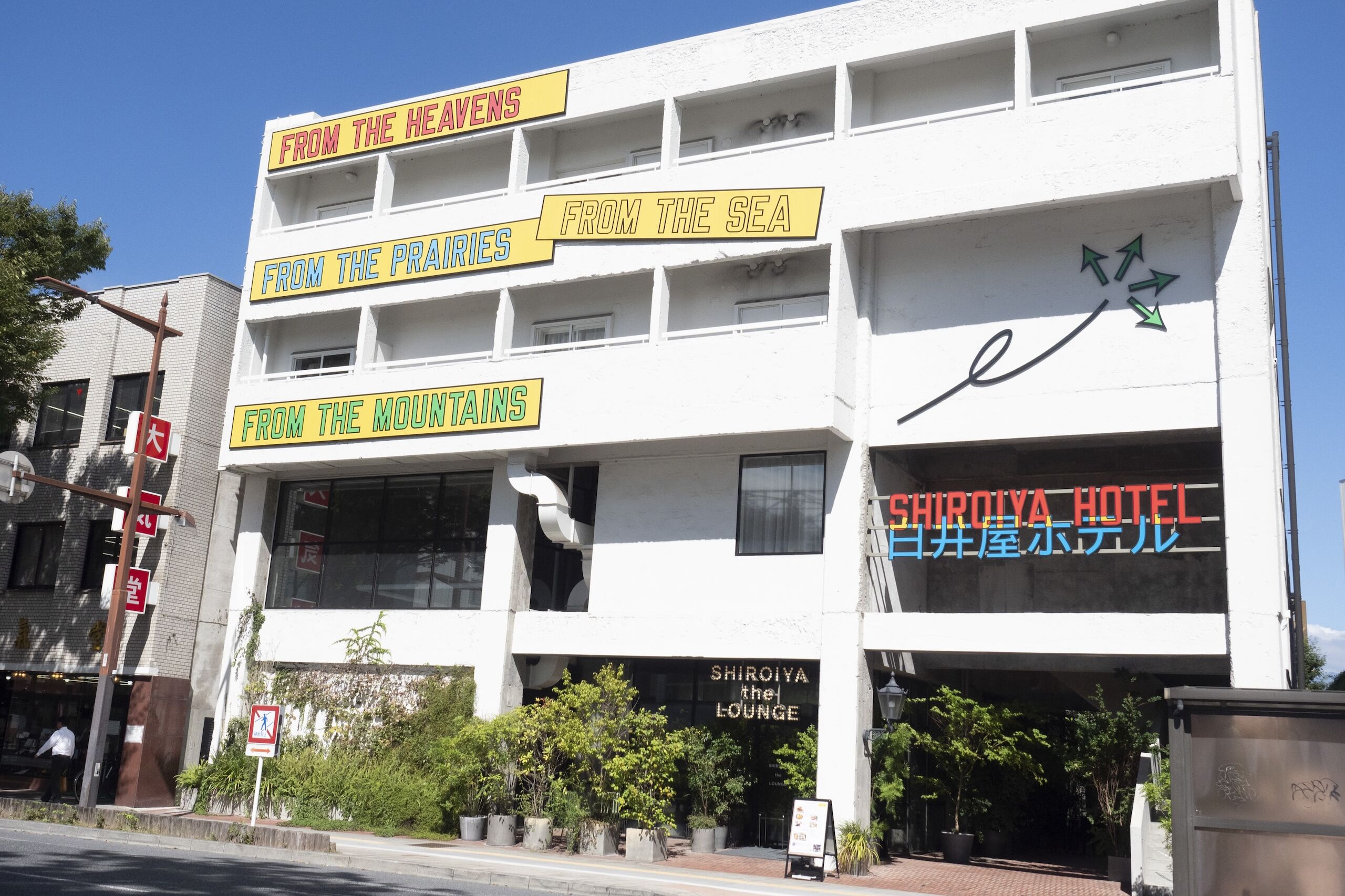Vegetables bursting with flavor. The signature dish of Chef Hiroshi Tsubouchi at “cucina salve” in Chichibu City is the “Seasonal Vegetable Salad” freshly harvested from his own farm.
Hiroshi Tsubouchi (born 1980), known as “The Seed-Sowing Chef,” cultivates 1.3 hectares of farmland, growing over 150 varieties of vegetables throughout the year.
In recent years, more chefs have started maintaining their own gardens, but few practice such authentic circular agriculture—organically farming, building soil from scratch, collecting and sowing their own seeds, and harvesting themselves.
Why did Tsubouchi commit to organic circular farming? It stems from his childhood struggles with severe allergies. He began organic farming in 2004 and fully entered agriculture in 2009. His cultivation methods, which embrace the local natural environment, freed him from allergies while producing delicious vegetables.
Another focus for Tsubouchi is poultry farming. He raises the pure Japanese breed “Goto Momiji” in open coops with free-range methods that minimize stress. Their feed primarily consists of rice bran from local sake production and okara from handmade tofu shops, fermented with broken rice, while also incorporating kitchen scraps from the restaurant. As a result, the restaurant produces virtually no food waste.
Compost is made from chicken manure, mushroom waste wood, and sawdust. The heat generated during fermentation is used for seed germination, and the matured compost is returned to the fields to enrich the soil… Through this local circular system, Chichibu’s terroir continues to develop and deepen.
Tsubouchi’s restaurant is located in “Chichibu Omotesando Lab,” leading to Chichibu Shrine, famous for its night festival. While the approach is bustling with worshippers and tourists during the day, as evening falls, the crowd thins out. The buildings that retain their Showa-era character begin their retro hours. Their storytelling style, rich with hidden histories, is eloquent and expressive.
On the first floor of “Chichibu Omotesando Lab,” where Chef Tsubouchi’s restaurant is located, you’ll find “Mahoro Bar,” where you can enjoy Chichibu’s craft beers. The owner is Junji (born 1978), the second of the three Tsubouchi brothers. The bar always features 10 varieties of “Chichibu Beer” brewed at two local breweries, and their popular tasting flights of 3-5 draft beers keep the place bustling with patrons.
After a pleasant evening of drinks, you can stay at “Chichibu Hostel” on the second floor. This guesthouse is managed by the eldest brother, Akira (born 1974), who has developed various businesses overseas as well. These enviable brothers each walk their own path while ultimately heading in the same direction—regional revitalization.
We visited in spring. Plants during this season possess a refreshing “bitterness” that seems to cleanse the body. To allow guests to enjoy the natural flavors of the ingredients in the simplest way possible, Chef Tsubouchi finishes his dishes with carefully selected olive oil and balsamic vinegar.
The circle of food producers centered around Chichibu continues to expand. The “Seed-Sower” is planting not only vegetables in this land but also the seeds of “Chichibu Gastronomy”—a rich food culture.
cucina salve
Getting there: 27.7 km from Yorii Smart IC on Kanetsu Expressway (45 minutes by car), 650 m from Seibu-Chichibu Station on Seibu Railway (a 10 minute walk)
Address: 17-14 Banbacho, Chichibu City, Saitama Prefecture 368-0041
Tel: +81-494-22-6227
Website: https://salvagest.jp
Text/ Shunji Miyagawa
Photography/ Masashi Okutani
Translation/ Yumiko Sushitani
Related Posts
2025-08-01
The Blessings of Tsugaru and the Stories on the Plate
In the Tsugaru region of Aomori Prefecture, deep winter brings heavy snow that…
2024-11-24
Restaurant-Auberge on the Northern Slopes of Mount Fuji
Oshino Village in Yamanashi Prefecture, known as "the place with the most…
2024-11-13
Contemporary Art and Joshu Cuisine
Along the main boulevard of Maebashi, the capital city of Gunma Prefecture,…


